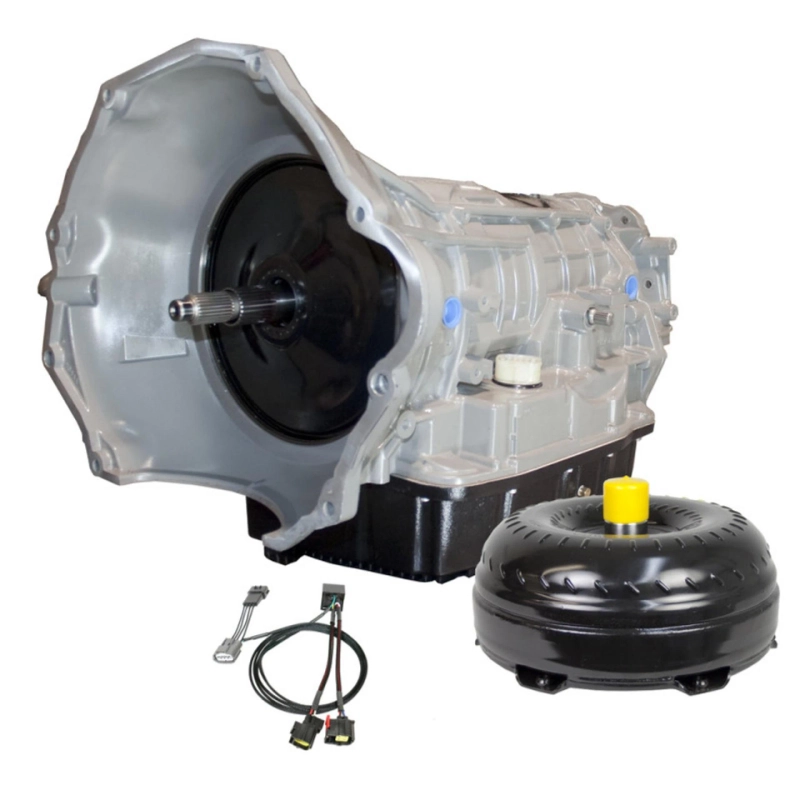Your car's transmission plays a critical role in ensuring a smooth and efficient drive. With time, wear and tear can take a toll, leading to potential issues that demand prompt attention. Recognizing the signs of transmission trouble can save you from costly repairs down the road. In this guide, we'll explore eight indicators that suggest your car's transmission needs immediate attention.
Unusual Noises: One of the earliest signs of transmission problems is unusual noises during operation. Whether it is a 2012 RAM 3500 transmission or a 2015 RAM 2500 transmission system, if you hear clunking, whining, or grinding sounds while shifting gears, it could indicate issues within the system. Don't dismiss these sounds as normal; instead, seek expert assistance to diagnose and address the problem.
Slipping Gears: A slipping transmission is a red flag that should not be ignored. When your car unexpectedly changes gears or has difficulty staying in one gear, it could indicate low transmission fluid levels, a worn-out clutch, or more severe internal issues.
Delayed or Rough Shifting: Transmission trouble often manifests as delays in shifting or rough gear changes. A noticeable delay when shifting gears or feeling a jolt during the process may also lead to problems with the transmission fluid or other components.
Fluid Leaks: Transmission fluid is important for lubricating and cooling the different components of the transmission. If you observe red or brown fluid beneath your parked car, it could be a sign of a transmission fluid leak. Regularly check for leaks and address them to maintain the proper functioning of your transmission.
Warning Lights: Modern vehicles are equipped with sophisticated onboard diagnostics, and the transmission system is closely monitored. When the transmission warning light is illuminated on your dashboard, it's a clear indication that something is amiss. Consulting a professional mechanic for a diagnostic check can help pinpoint the issue.
Burning Smell: A burnt smell originating from your engine bay is a cause for concern, and it could be linked to transmission problems. Overheating transmission fluid can emit a distinct burning odor. Ignoring such smell may lead to severe damage. Seek immediate attention to prevent further complications.
Difficulty in Engaging Gears: If you find it challenging to shift your car into gear or if the gear lever feels unusually stiff, it could signify transmission issues. Difficulty in engaging gears may result from a worn-out clutch, a linkage problem, or other internal transmission concerns.
Strange Vibrations or Shakiness: An excessively vibrating or shaky vehicle, especially during acceleration, can be indicative of transmission trouble. Vibrations may result from imbalances within the transmission components. Timely inspection and maintenance can help rectify these issues and ensure a smoother driving experience.
Strange Sounds in Neutral: Unusual noises originating from your vehicle while it's in neutral can be indicative of transmission issues. The clunking, whirring, or rattling sounds when the car is not in gear is a signal that merits investigation. Transmission troubles may persist even when the vehicle is not actively shifting gears.
Dashboard Warning Lights – Check Engine Light: In addition to the specific transmission warning light, the general check engine light can also signal potential transmission problems. Its light may illuminate various issues, and a diagnostic scan by a qualified mechanic can pinpoint whether transmission concerns are contributing to the alert.
Difficulty in Maintaining Speed: An unexpected loss of speed or the sensation that your car is struggling to maintain a consistent speed, especially on flat roads, may signal transmission trouble. This symptom could be linked to slipping gears, and a professional inspection is essential to diagnose and resolve the issue.
Jerky or Harsh Movement: When driving, if you experience jerky or harsh movements, especially during acceleration, it may indicate transmission problems. It is a result of irregular gear engagement or issues with the torque converter.
Difficulty in Reversing: When your vehicle encounters challenges when shifting into reverse, such as a delay or resistance, it may point to transmission issues. Difficulty in engaging reverse could be linked to problems with the transmission fluid, torque converter, or other internal components. Seek professional assistance for an accurate diagnosis.
Abnormal RPM Readings: Keep an eye on your car's RPM (revolutions per minute) gauge. A sudden or consistent spike in RPM levels without a corresponding increase in speed may indicate slipping gears or other transmission-related problems.
In Brief
Being attuned to the signs of transmission problems is important for maintaining the longevity and performance of your vehicle. If you notice any of these indicators, it's advisable to consult a professional mechanic promptly. Ignoring transmission issues can lead to more significant problems and higher repair costs. By addressing these signs early on, you'll not only safeguard your car's transmission but also ensure a safer and more enjoyable driving experience.


